Are you navigating the complex waters of legal issues within the energy sector? Whether you're dealing with regulatory compliance, contract disputes, or environmental concerns, understanding the legal landscape is crucial. Our exploration into effective legal strategies and frameworks tailored for the energy industry aims to empower you with insights and guidance. Keep reading to discover how you can safeguard your interests and stay ahead in this ever-evolving field!

Regulatory compliance and legislation updates
In the energy sector, regulatory compliance ensures adherence to laws governing operations, environmental standards, and safety measures. Entities such as the Federal Energy Regulatory Commission (FERC) and the Environmental Protection Agency (EPA) lay down critical regulations impacting energy production and distribution. Recent legislative updates include the Inflation Reduction Act (IRA) of 2022, which enhances tax credits for renewable energy, and the Infrastructure Investment and Jobs Act (IIJA), allocating over $65 billion to modernize the electrical grid and bolster clean energy initiatives. Companies must remain informed on specific compliance dates and reporting deadlines to avoid penalties, promote sustainable practices, and capitalize on available incentives in a rapidly evolving legal landscape.
Contractual obligations and risk mitigation
In the energy sector, contractual obligations play a crucial role in determining the responsibilities of parties involved in various agreements, including power purchase agreements (PPAs) and joint venture contracts. Each party must adhere to specific terms outlined in these contracts, which may include performance guarantees, delivery timelines, and compliance with regulatory standards, such as those enforced by the Federal Energy Regulatory Commission (FERC) in the United States. Risk mitigation strategies are essential to safeguard investments against volatile market conditions, regulatory changes, or supply chain disruptions. Implementing robust contract clauses, such as indemnity provisions and force majeure events, can protect stakeholders from unforeseen circumstances that may affect project feasibility. Engaging legal experts with experience in energy law ensures that contractual frameworks are designed to effectively manage risks and uphold the interests of all parties involved throughout the contract's lifecycle.
Environmental and sustainability considerations
Environmental regulations impact energy projects significantly, particularly in regions like California, known for stringent environmental laws aimed at protecting natural resources such as air and water. Legal frameworks including the National Environmental Policy Act (NEPA) and state-specific laws demand comprehensive environmental impact assessments (EIAs) to evaluate potential effects on ecosystems. Compliance failures can lead to substantial fines, project delays, and reputational damage. Additionally, sustainability considerations, aligned with initiatives like the Paris Agreement, emphasize renewable energy sources, necessitating legal strategies that promote carbon neutrality and support green technologies. Legal counsel is essential for navigating complex regulatory landscapes and ensuring compliance with evolving sustainability standards in the energy sector.
Intellectual property and patent management
In the energy sector, intellectual property (IP) crucially supports innovations in renewable energy technologies, such as wind turbines and solar panels. Patent management significantly affects competitive advantage, encompassing registered patents, which provide legal protection for inventions, and ongoing patent litigation trends that may influence future developments. Legal frameworks often dictate the duration of patent protection, typically around 20 years from the filing date, ensuring that companies retain exclusive rights to their innovations during this period. Compliance with international patent regulations, such as those stipulated by the World Intellectual Property Organization (WIPO), also impacts strategic planning of energy companies. Monitoring and enforcing IP rights are essential to prevent infringement, fostering a robust system for protecting technological advancements vital for sustainable energy solutions.
Renewable energy transition and innovations
The renewable energy transition is a critical focus within the energy sector, particularly as nations aim to reduce carbon emissions and embrace sustainable practices. Innovations in solar energy technology, such as photovoltaic cells with efficiency ratings exceeding 22%, highlight advancements driving this transition. Wind energy developments, with offshore wind farms generating over 10 GW of power annually in regions like the North Sea, showcase the potential for large-scale renewable integration. Regulatory frameworks in the European Union, such as the Fit for 55 package, aim to incentivize these innovations while ensuring compliance with environmental standards. Legal advice in this context must address contracts with energy providers, intellectual property rights for new technologies, and compliance with local zoning laws and permitting processes. Understanding the evolving landscape of incentives, such as tax credits for renewable projects, is crucial for stakeholders seeking to navigate this dynamic sector.
Letter Template For Energy Sector Legal Advice Samples
Letter template of legal consultation request for energy sector compliance issues
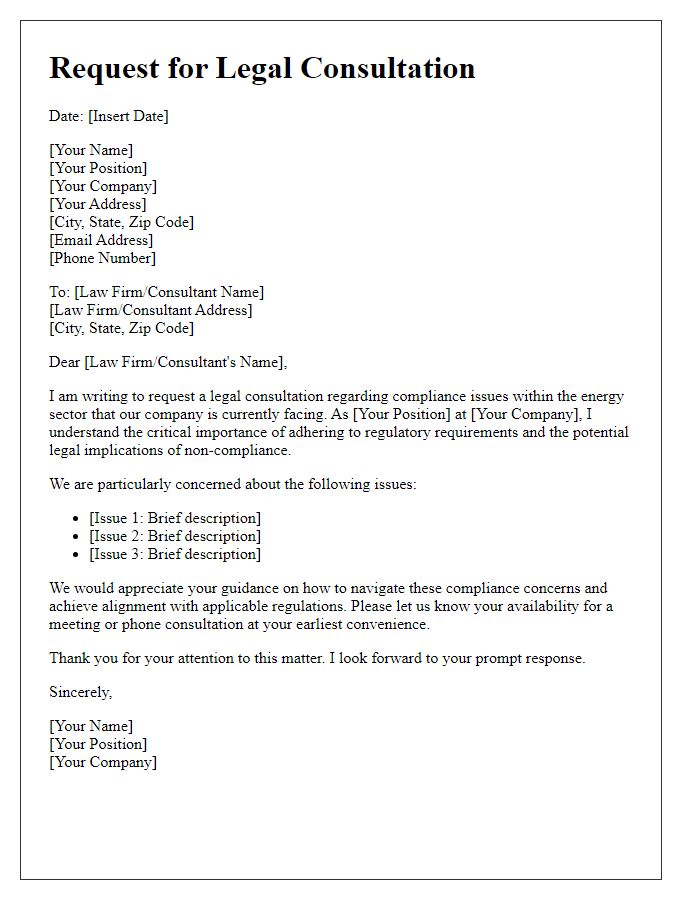

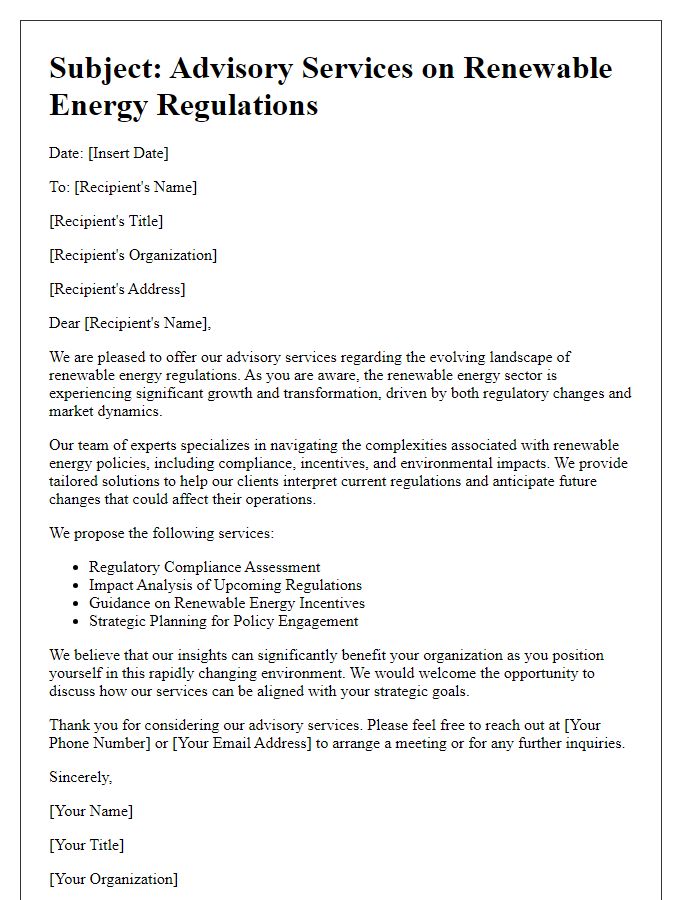
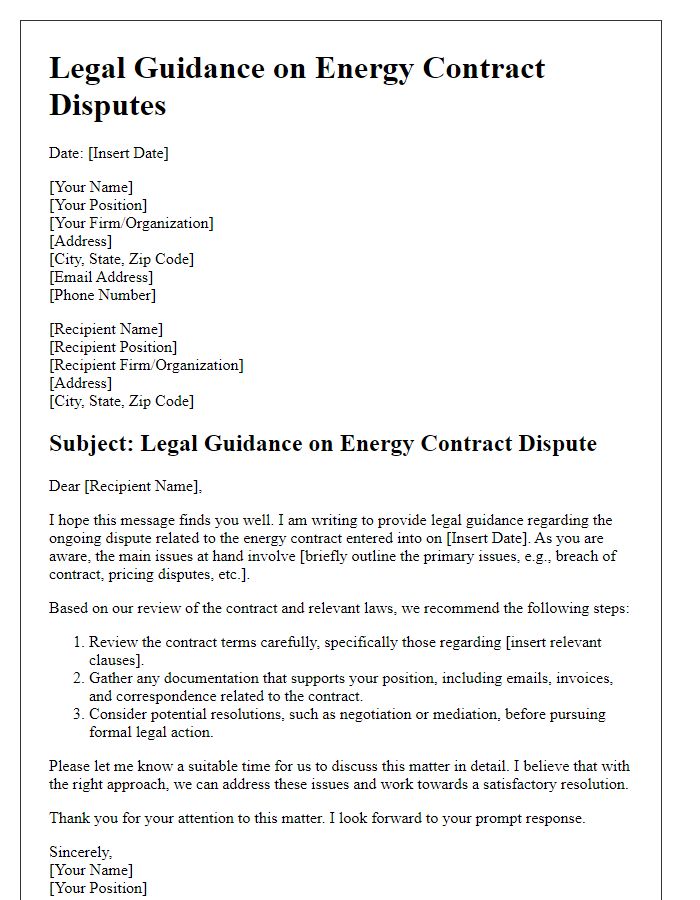
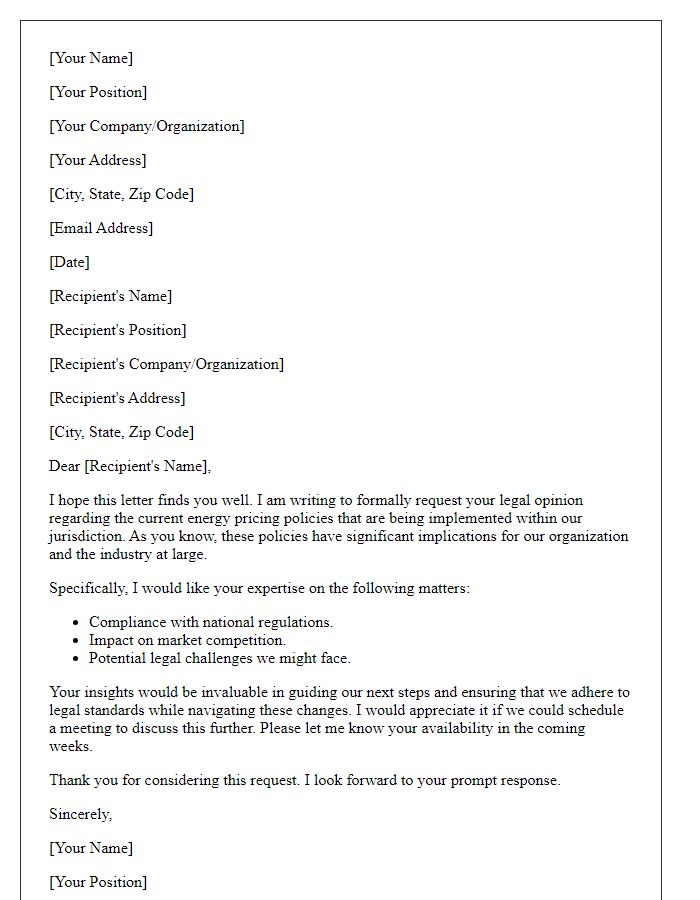
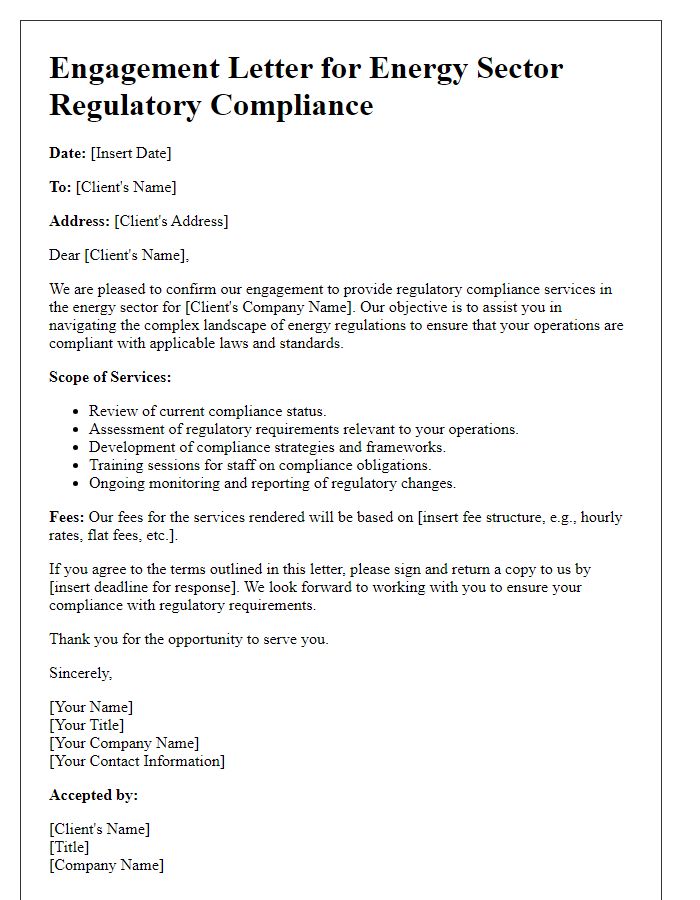
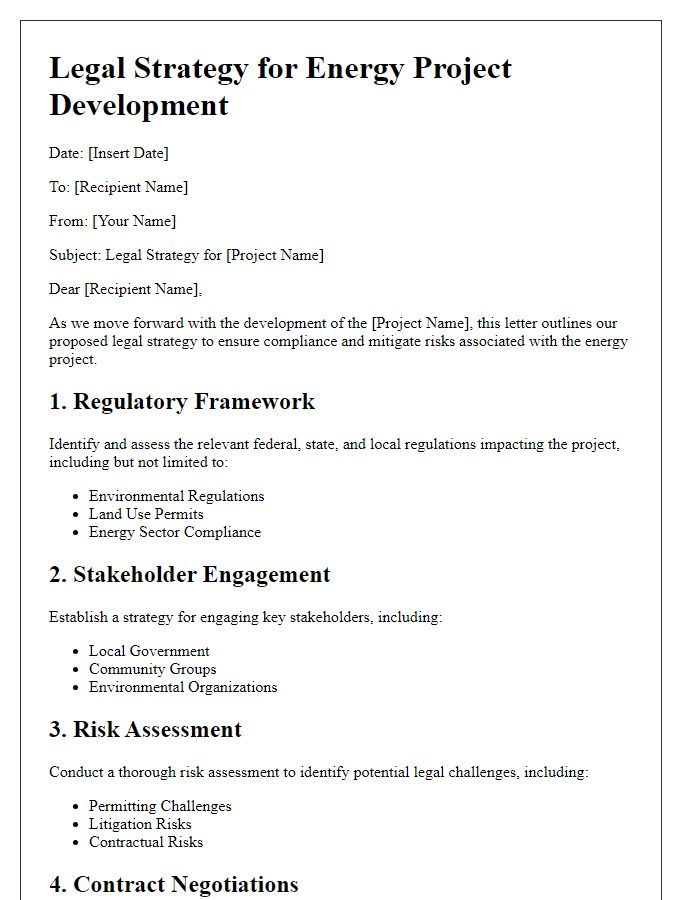
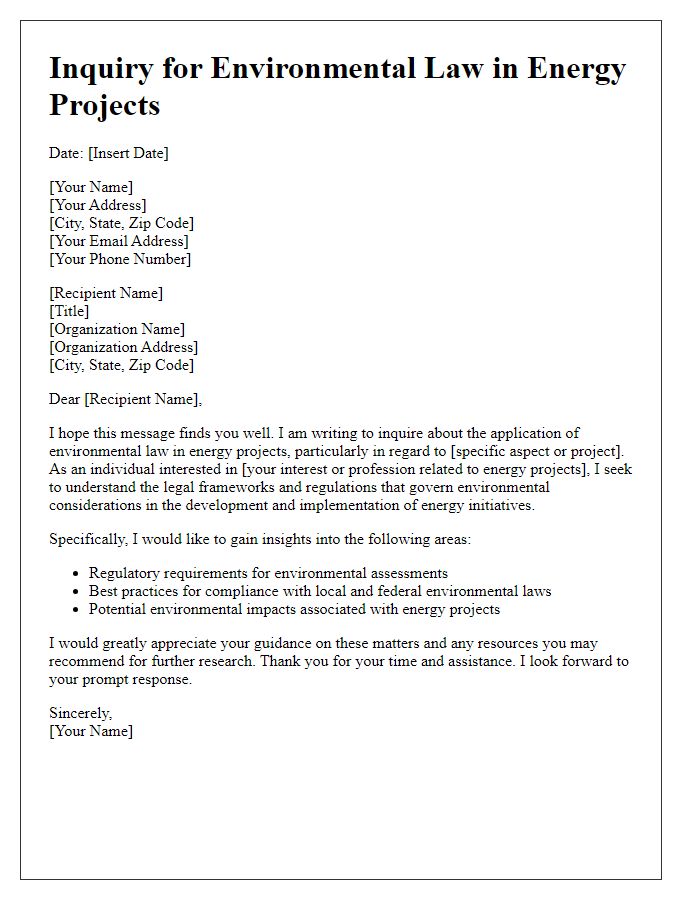
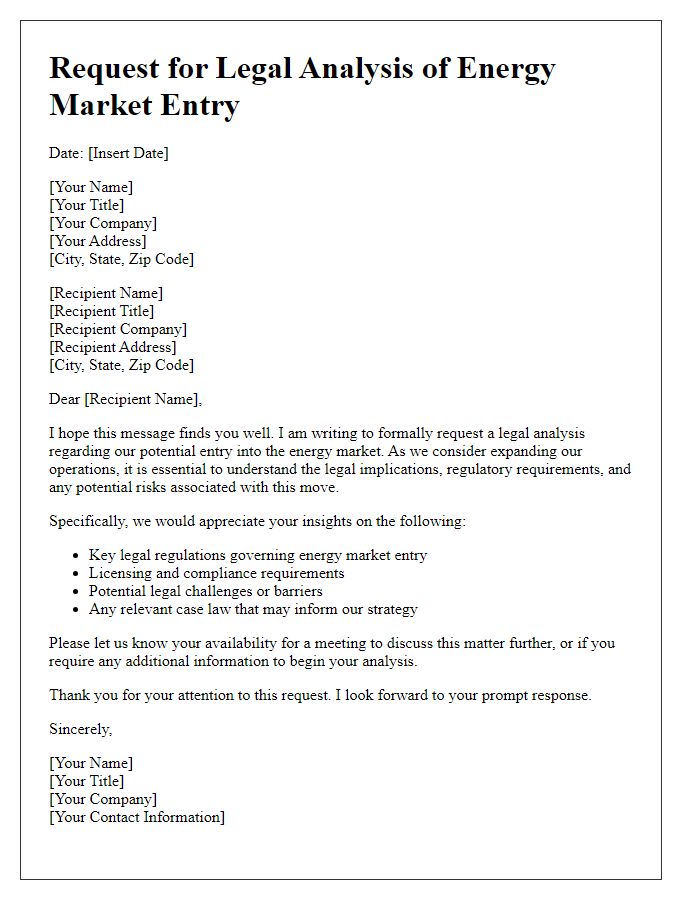

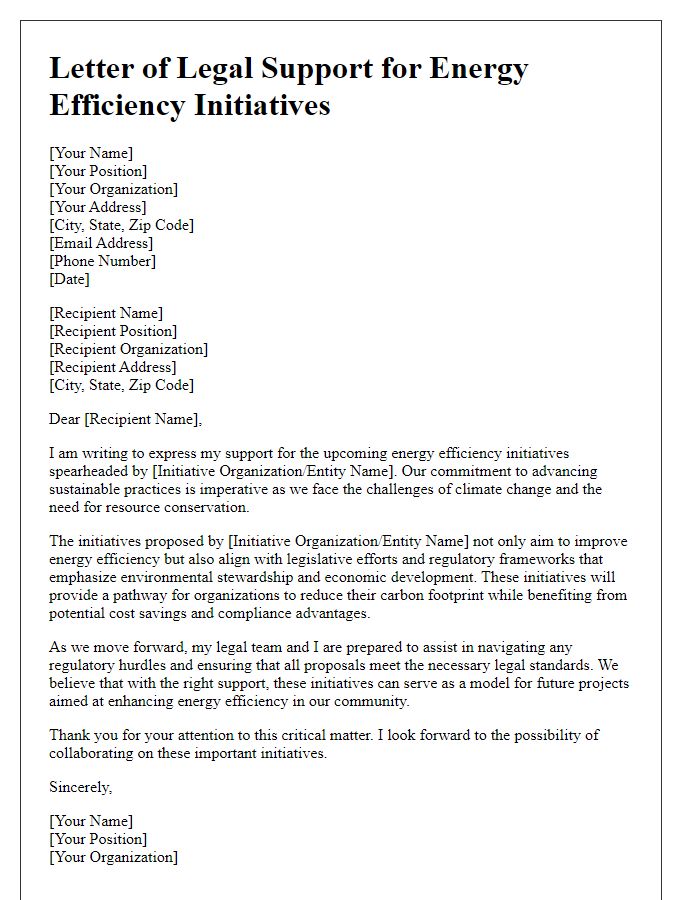


Comments